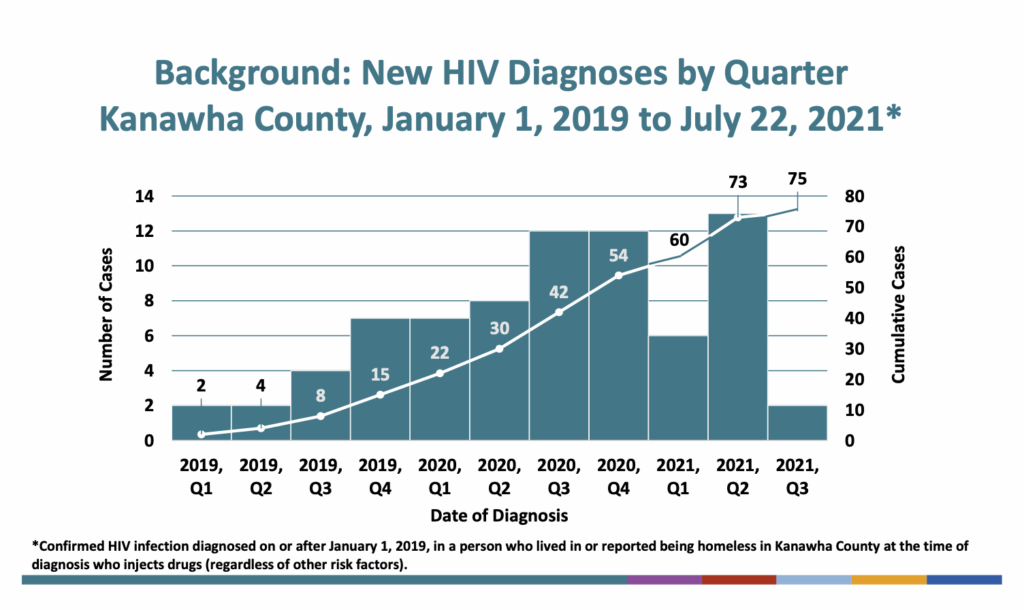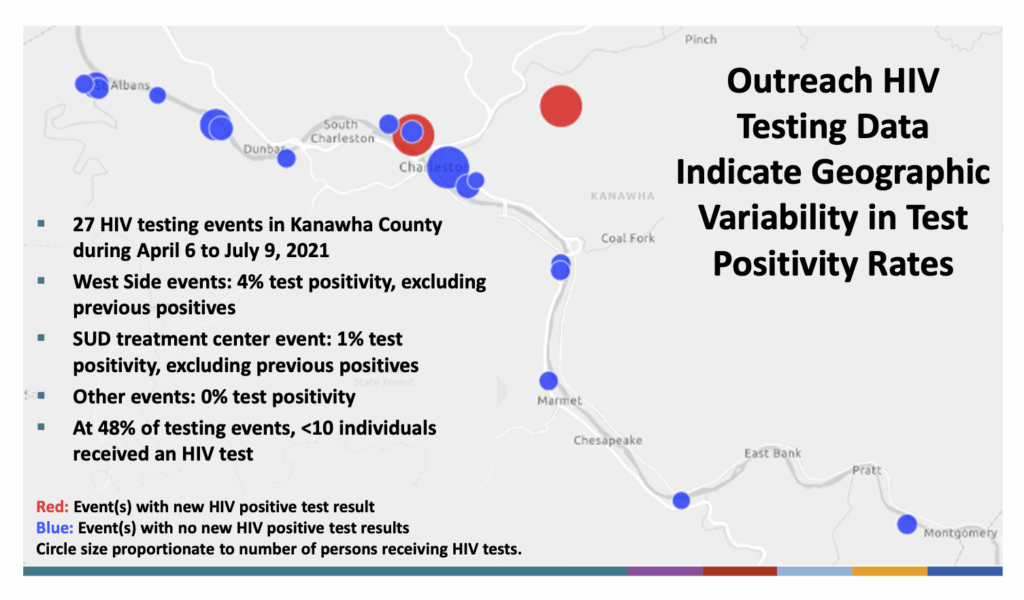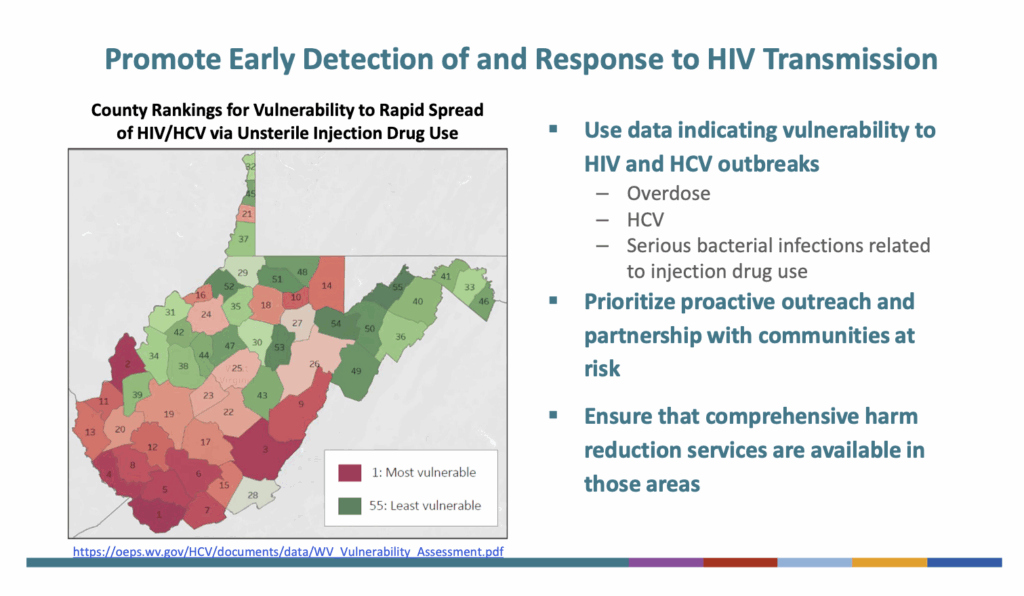
In August 2021, the West Virginia Department of Health and Human Resources (DHHR), alongside the Kanawha-Charleston Health Department and the U.S. Centers for Disease Control and Prevention (CDC), presented the final findings from the CDC’s investigation into the Kanawha County HIV outbreak. Read the official announcement here.
The CDC’s Epi-Aid team found urgent gaps in prevention, testing, and treatment services for people who inject drugs — and warned that the outbreak could worsen without swift, comprehensive action.
Key CDC recommendations include:
- Expand access to sterile syringes, HIV and hepatitis C testing, and treatment by reducing barriers to harm reduction services and increasing mobile outreach efforts.
- Normalize routine HIV/hepatitis C testing with opt-out options in medical and community settings.
- Co-locate services for substance use, HIV care, hepatitis C treatment, and mental health services to make it easier for people to access the help they need.
- Engage directly with affected communities — including involving people who use drugs in program design — to build trust and improve outcomes.
- Prioritize data collection and outreach to other high-risk counties to prevent similar outbreaks across West Virginia.
You can read the full CDC report and recommendations here (PDF).

Despite ongoing efforts — including new outreach teams, training for community groups, and expanded HIV testing programs — the report makes clear that urgent improvements are still needed.
As Dr. Ayne Amjad, West Virginia’s State Health Officer, emphasized:
“The state will continue to work with its partners to implement innovative approaches to delivery of prevention and care for people who inject drugs.”
For more background on HIV in West Virginia, visit the DHHR’s HIV page.



